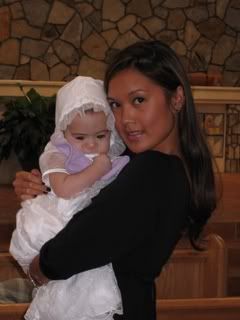According to Wikipedia, or an online newspaper (aka web newspaper), “is a newspaper that exists on the World Wide Web.” I will also define what a newspaper is, just to show the clear and true definition of it. Wikipedia defines a newspaper as “a publication containing news, information and advertising, usually printed on low-cost paper called newsprint. It may be general or special interest, most often published daily or weekly.”
My opinion:
In our generation, the World Wide Web has become the ‘being of our existence.’ Some of us spend almost 50% of our days in front of computers…scary but true. Our lives have become so saturated with work, projects, social lives, etc. that we sometimes don’t have the time to even purchase a newspaper or a magazine. So what do we do? We find an easier way to access our current events, local news, or news about the rest of the world by the click of a button, or our mouse. Online news is that main source of news for some people.
But how does online news differ from news that is printed on a newspaper?
In an article called “People get more ‘top’ news in the print than by computer, study shows,” two professors David Tewksbury and Scott Althaus found very interesting studies about the different type of information that students access online and in a newspaper. They said that “in the study of college students reading the New York Times, researchers found that online readers were less likely than their paper-reading counterparts to have read national, international and political news -- all typical "front section" newspaper topics.” They also found that 2/3 of newspaper readers read the “front section,” in comparison to only 41 percent of online readers reading it.
Another main point that they make is that "online news sites often give prominence to fast-breaking stories that in the grand scheme of things aren’t that important.” They also mention that online news sites focus more on what are the newest stories, and reader’s interests rather than the truly important stories (mentioned at any time during the day).
I totally agree with this point. I am a member of the Yahoo community and every time I open up my personalized Yahoo site, the news comes up. The stories are usually presented as summaries, from the newest to the oldest event. They also highlight the news stories that are geared towards my own personal interests. Although I do receive great current events from Yahoo, I wonder…am I really reading about the truly important events going on?
Another article that describes the issues between these two sources called “Web vs. Print: Online Successes at One Newspaper Raise More Questions Than They Answer,” also holds arguments for both sides. This article mentions these two sources as “conjoined twins,” where one is thriving while the other is declining. However, they do depend on each other to survive.
Donald Graham, the CEO of the
The difference between an online news article and a newspaper article that I found:
Picture from Yahoo news online:

An article that I found on Yahoo News online, called “NC beach house fire kills students” was the main article on the site. It was the top headline of Yahoo news, which had a picture and a video that made me click on it right away. It did catch my eye because of the horrifying picture of the house, and the video that supported it. That’s one of the main differences with online news and printed news. You can’t click on a video that supports the article or that goes into more detail about the story. There are more supplemental materials to go along with each news story on online news sites. These videos, commentaries from the writers, commentaries from the news site editors themselves, can give you a deeper look into the story that you are reading about. In newspapers, you are limited to just the article itself; and sometimes with no illustrations to help catch a reader’s eye. Another main point that I notice with online news stories is that, they can be as long as the writer wants because they aren’t limited to fitting their information on a section of the newspaper. Their articles can extend to more than two pages if they preferred it, because all you have to do is click next on your computer screen. Each new story on online news also gets highlighted, where it goes on top of the site with a picture and a summary. In newspapers, there is just that one article on that specific topic, and that’s it.
The same article called “N.C. beach town stunned as fire investigation continues”, which I found in the newspaper USA Today was more limited with the amount of information that it provided about the tragic event. They only showed one picture of the house, just like the Yahoo news did, but they obviously didn’t have any supplemental videos or commentaries to go along with it. As I stated above, these things can be a bonus for readers because it gives them more of an inside look at the story.
Although newspapers may be limited with the amount of information that they can include about certain stories, they still tend to focus more on the important articles by placing them in the “front section,” just like
References:
- Baker, Mike. (October 2007). NC beach house fire kills students. Retrieved October 29, 2007, from http://real-us.news.yahoo.com/s/ap/20071029/ap_on_re_us/beach_house_fire.
- Lynn, Andrea. (October 2007). People get more 'top' news in print, than by computer, study shows. Retrieved October 29, 2007, from http://www.news.uiuc.edu/gentips/01/02netnews.html.
- Knowledge at Wharton. October 2007. Web vs. Print: Online Successes at One Newspaper Raise More Questions Than They Answer. Retrieved on October 29, 2007, from http://knowledge.wharton.upenn.edu/article.cfm?articleid=1699.
- http://en.wikipedia.org/wiki/Online_news, Online news
- http://en.wikipedia.org/wiki/Newspaper







